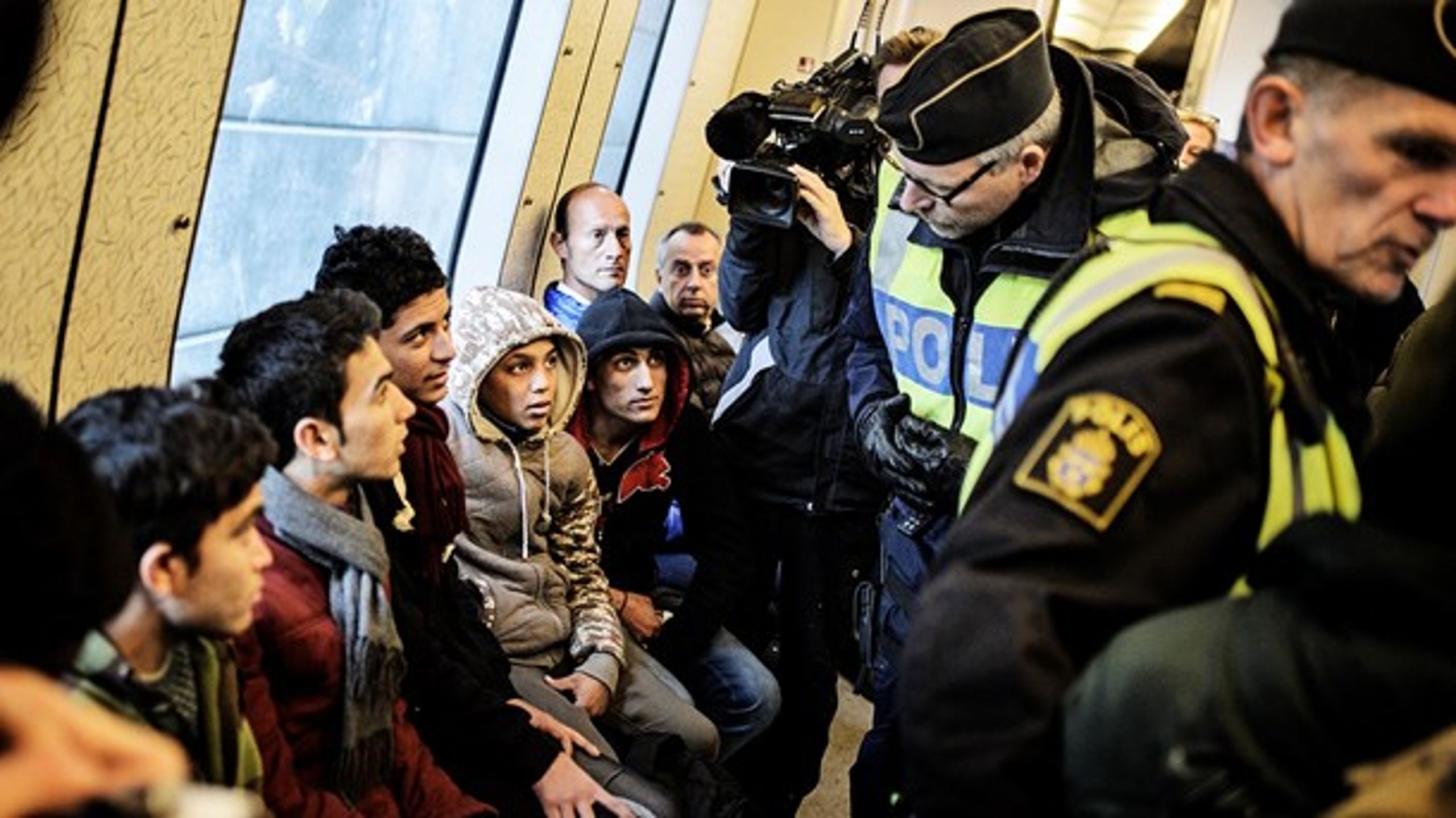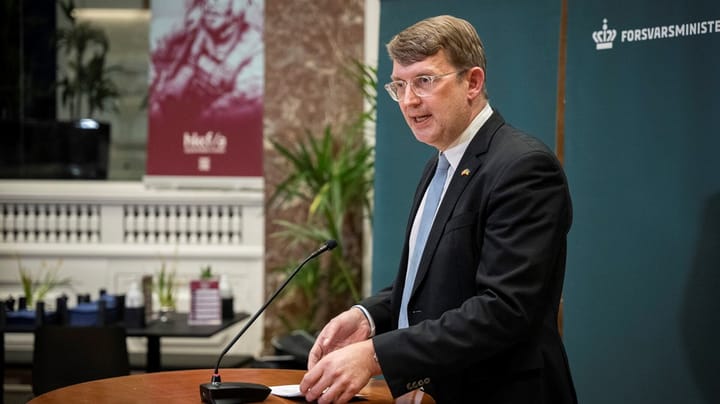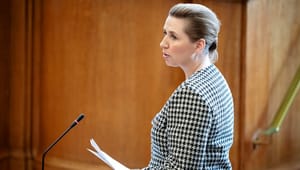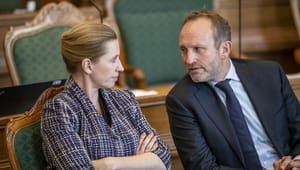Opinion: Danish chairmanship risks undermining human rights
OPINION: The ambitions of the Danish government to reform the European Convention system have been met with predictable opposition. If the draft "Copenhagen Declaration" is adopted, it would be to the serious detriment of the human rights of European citizens.

Foto: Simon Læssøe/Scanpix

Anders Brønd Christensen
Debatredaktør og journalistBy Claus von Barnekow
Former Ambassador to the Council of Europe and Senior Adviser in the Council of Europe Secretariat, Senior Adviser at the Danish Helsinki Committee on Human Rights
If the draft Copenhagen Declaration of 5th of February 2018 on the continuing reform of the Council of Europe’s Convention System was adopted it would be to the serious detriment of the European Convention system and thereby to individual human beings in 47 member States.
The draft has, however, for exactly that reason not found favour with a large majority of member states in the Council of Europe. It will in all probability be seriously redrafted.
Notwithstanding the contents of domestic debate, was it after all credible, that the government of Denmark during its chairmanship of the Committee of Ministers (CM) of the Council of Europe, would launch a direct showdown with the European Court of Human Rights (ECtHR) and the European Convention of Human Rights (ECHR)?
Write to [email protected]
If so, it has forgotten to count to 47. That is the number of member states who altogether will have to endorse any draft declaration endeavouring to affect the ECtHR’s decisions.
The government’s strategy changed from (with a military term) one of direct approach to a strategy of indirect approach. The aim is to fulfil the government’s and the supporting parties’, particularly the Danish People’s Party, national agenda.
As the text stands, it would seriously change the existing balance between member states and the independence of the ECtHR to the detriment of the whole convention system and member states citizens.
Claus von Barnekow
Former Danish Ambassador to the Council of Europe
The national agenda
The main goal is to expel more foreign criminals (ECHR art. 8). The next is to initiate a showdown with the ECtHR’s concept of ”dynamic interpretation”. Finally it strives to achieve an increased parliamentary guidance of the court.
That becomes evident from various statements in the frequently heated and often unqualified domestic debate in Denmark about the convention system.
But the goals were slowly downplayed rhetorically. At the same time myths about the convention system and assertions about increasing scepticism regarding the system in European populations were factually refuted, nevertheless the assertions continued in the public debate.
Danish courts’ caution in expelling a few, high-profile foreign criminals was among one of the most important clarifications brought out in the open. Anyway, only politicians from the opposition defended the convention system.
The main goals have therefore seemingly been changed. The government’s focus is officially now on the continuation of the since 2010 ongoing reform of the convention system.
That is connected to a decision taken in early 2016 by the Council of Europe’s decision making body, the Committee of Ministers.
The national agenda’s goals, as explained above, are not directly mentioned in the draft declaration. But the devil is – as the cliché runs – in the detail of the draft declaration cf. what follows.
Only support from Denmark's "new friends"
Now member states in-depth analysis of the text has had its first result. The draft was presented on the 7th of February in the Committee of Ministers by a special team from the Ministry of Justice.
It gave rise to interventions from around 60 percent of the 47 delegations. The outright support is said to have been counted on less than one hand, and only from those countries that could be called Denmark’s new friends.
The Ministry of Foreign Affairs as such did not participate in the presentation.
The CM Drafting Group on the draft Copenhagen Declaration for the Conference on "the European Human Rights system in the future Europe" was on the 22nd of February presented with a document containing member states’ comments, concerns and amendments.
In order to understand the magnitude of the Danish drive it should suffice to say that this document at present is understood to be around twenty times larger than the Danish draft!
In the end of the day the 47 governments’ representatives shall endorse – reach consensus – on a revised text in its entirety. And the timetable from now until April is very narrow.
That demands particularly clarity, consistency and seeing through direct and indirect consequences of a new draft text. Especially the minority must prepare to compromise.
Several drafting meetings will be needed. According to the usual Council of Europe processing, a draft should already have been entirely agreed upon by the CM (ambassadors) in Strasbourg before it is presented for its formal adoption in Copenhagen at the High Level Meeting on the 11th-13th April.
The root cause
The numerous comments from hitherto around 60 per cent of the member states underline what is at stake.
As the text stands, it would seriously change the existing balance between member states and the independence of the ECtHR to the detriment of the whole convention system and member states citizens.
That would be to the benefit of unwilling member states (governments). The distinctions between the powers of member states and the ECtHR must not be made vague, diluted.
That would be contrary to the Statute of the Council of Europe and ECHR. The ECtHR is not, and must neither be a front line nor a battlefield for member states' different national interests.
The unnecessary negative tone directed against the court must be transformed into a positive one.
The existing problems are caused by member states, negligence in abiding by the ECtHR’s rulings. If the aim is to remedy that situation, the existing situation’s causality must be accurate.
It is only by continuing to be independent – not a subsidiary – that the ECtHR and the convention system will be able to successfully cope with prevailing and future problems.
That needs sufficient funding of the court by member states and member states' tangible political support, not admonishments.
The future of Europe
Specific national elements, such as migration, should not figure in the declaration and must be deleted.
If each delegation adds its own points of concern, the declaration will be of no collective use. Reference to constitutional traditions and specificities of states parties contravene the accepted Western position that Human Rights are universal.
Reference to the necessity to ensure popular support is contravening and menacing. The ECtHR’s role is not to ensure that majorities in member states are content. The Human Rights are there to protect minorities and dissent.
As Europe’s past has amply demonstrated, majorities and governments do not always make ethically or legally defensible choices. Finally, the wording implicates that popular support is doubtful.
That is an undocumented assertion, and it needs clarification or deletion.
In conclusion, a number of paragraphs should be deleted. Inter alia: 13, 14, 23, 24, 25, 26, 41, 55, 56, 57, and the heading between 21 and 22. The draft needs to be substantially shortened, more focused on new elements and ideas.
For further reading please see this link.
Finally, it should be recalled that the title of the programme of the Danish Chairmanship for the Council of Europe’s Committee of Ministers read: “Europe in a time of unrest and upheaval – strong values and a future-proof Council of Europe.”
“Future-proof” but for whom?
Få GRATIS nyheder fra Danmarks største politiske redaktion









































